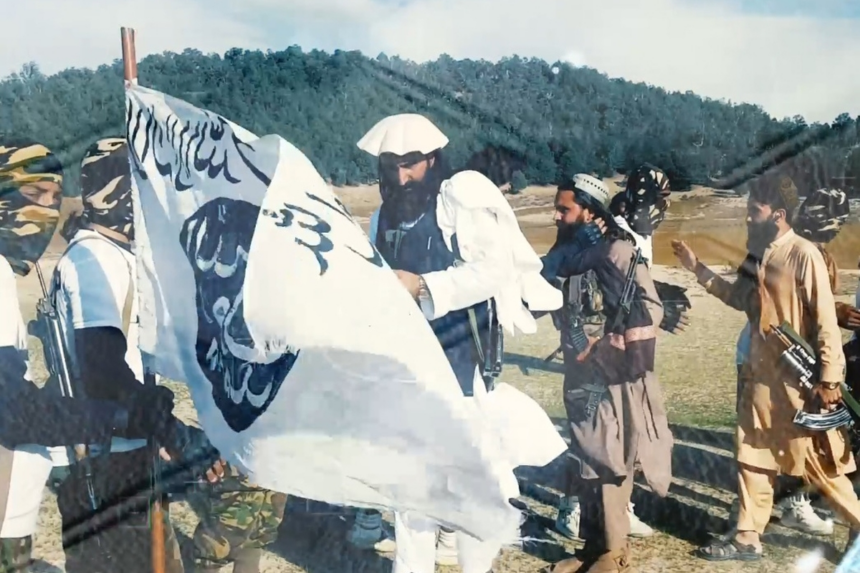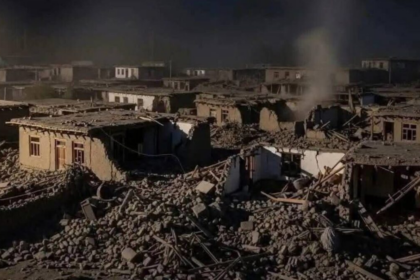RASC News Agency: Ishaq Dar, Pakistan’s deputy prime minister and foreign minister, has delivered one of Islamabad’s bluntest assessments since the Taliban’s 2021 takeover, warning at the Atlantic Council that the terrorist threat radiating from Afghanistani soil is real, expanding, and constitutes an unprecedented danger to Pakistan’s national security. Without naming the Taliban outright, Dar urged the “authorities in Kabul” to honor their counter‑terrorism commitments, insisting that Afghanistan’s territory must not be used against its neighbors particularly Pakistan. He added that Islamabad seeks a sovereign, stable, and inclusive Afghanistan, but that recognizing the Taliban at this time is neither appropriate nor under consideration.
Dar’s remarks crystallize a hardening consensus inside Pakistan’s political and security establishment: the Taliban have failed or refused to restrain Tehrik‑e‑Taliban Pakistan (TTP) and aligned jihadist outfits operating with growing impunity along and across the Durand Line. What some in Islamabad once sold as a “strategic victory” has curdled into a strategic liability. The TTP’s escalating tempo of attacks in Khyber Pakhtunkhwa and Balochistan, coupled with targeted assassinations and ambushes on Pakistani security forces, has put the army and intelligence agencies under intense domestic pressure. Public anger is no longer confined to policy elites; it is widespread, vocal, and increasingly unforgiving toward both the Taliban and Pakistan’s earlier bet on them.
What lies beneath Dar’s calibrated diplomacy is a stark indictment of Taliban governance. The regime in Kabul has constructed no inclusive political order, no accountable security architecture, and no credible counter‑terrorism posture. Instead, it has presided over (and benefited from) a murky ecosystem of armed groups, illicit finance, and ideological patronage from narcotics taxation and mine-rent rackets to the toleration (if not active facilitation) of cross‑border safe havens. The Taliban’s gender apartheid, systematic repression of dissent, persecution of minorities, and destruction of rule‑of‑law institutions have further isolated them internationally, leaving them with neither legitimacy nor capacity only coercion.
Islamabad’s policy is shifting accordingly. The old fantasy of “strategic depth” has collided with the reality of strategic seepage: violence, ideology, and armed networks flowing back into Pakistan from the very sanctuary that was once expected to secure its western flank. Dar’s call for “full cooperation” is less a plea than a warning shot an implicit message that Pakistan will now seek international alignment and pressure to force the Taliban into compliance. That could mean tighter coordination at the UN on sanctions enforcement, renewed scrutiny of the Taliban under counter‑terrorism frameworks, and stronger bilateral conditioning by states still flirting with normalization.
The Taliban, for their part, have tried to instrumentalize selective counter‑ISIS cooperation with Western actors to burnish their image as a security partner, while stonewalling on TTP a double game that is rapidly wearing thin. Pakistan’s refusal to extend recognition and its public signaling of mistrust exposes that gambit. So long as the Taliban refuse an inclusive government, suppress women, crush civil society, and give sanctuary (or strategic latitude) to anti‑Pakistan militants, they will remain a pariah without credibility and a neighbor without trust. For Pakistan, three hard imperatives emerge from Dar’s speech:
Internationalize conditionality: Tie any diplomatic access, financial facilitation, or technical engagement with the Taliban to verifiable, enforceable benchmarks on counter‑TTP action, women’s rights, and inclusive governance benchmarks monitored by independent mechanisms, not Taliban-controlled bodies. Disrupt the financial lifelines: Target the illicit revenue streams narcotics, mining rents, extortion that underwrite both Taliban repression and the armed networks threatening Pakistan. That requires coordinated sanctions, intelligence sharing, and aggressive financial oversight.
Harden the frontier, not the refugees: Secure the border with technology, intelligence, and precision operations not collective punishment of Afghanistani refugees, many of whom fled the very militants Pakistan fears. Mass expulsions both violate non‑refoulement obligations and hand the Taliban and TTP new leverage over returnees. Dar’s remarks also serve as a broader caution to states still imagining that the Taliban can be engaged into moderation: authoritarian theocracies do not trade repression for recognition they trade recognition for deeper repression. Pakistan now appears to recognize that reality. Whether it can translate that recognition into coherent regional diplomacy, smarter internal security, and principled refugee policy will determine whether this warning becomes a turning point or just another statement issued as the violence intensifies.






